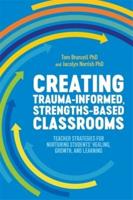Publisher's Synopsis
Why do programmes of continuing professional development and Learning (CPDL) for teachers so frequently fail to deliver sustained improvement in children's social behaviour and academic performance? How can schools that prioritise the most disadvantaged children in one of the world's poorest countries consistently achieve among the best academic results in the country? How can teachers in these schools, most of whom have received little or no formal training, provide CPDL that leads to improvement in other schools?
These questions are as relevant in high income countries as in Sierra Leone, where the research for this book was carried out. Lessons in School Improvement from Sub-Saharan Africa addresses them head-on by describing the planning, delivery and evaluation of a school improvement programme in which development of professional learning networks (PLNs) was a key component. The evaluation showed that children whose teachers had taken part in the programme made significantly more progress in attendance, literacy and behaviour than children in control schools.
The book's professional relevance is strengthened by an accompanying Practitioners' Manual with full details of the CPDL. This enables replication of the results and provides a guide for future school improvement programmes and PLNs, both in low and high income countries.










